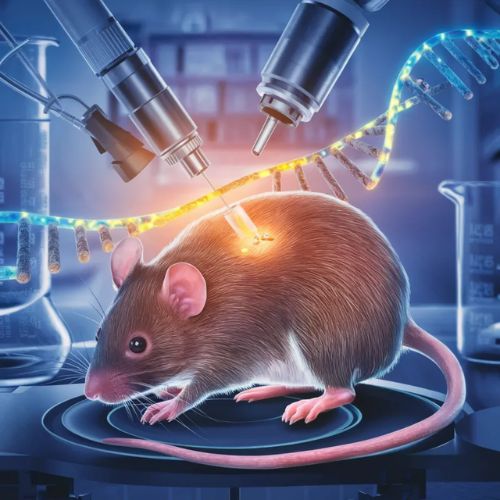Here's everything you need to know about Gene Therapy on mice!
From demons in the Great Indian epics like Bhagavatam to contemporary scientists, immortality is a concept that has fascinated humans for centuries.
But, nobody really cracked the code to it. Until NOW.
What if I told you that we are getting close, I mean really close to well… not being immortal… But, at least extending lifespans significantly?
A recent study conducted by researchers at Rejuvenate Bio, a San Diego-based biotech company, has revealed the potential of gene therapy to extend lifespan and reverse aging in mice.
Pretty cool, huh?
But, before we explore further, it is important to understand the complex and diverse nature of the Indian population and what therapies like this could mean for us in the long run.
Challenges in Indian Healthcare
India, a country with diverse cultures and traditions, also faces significant challenges when it comes to healthcare and longevity.
While Indians have an average life expectancy of about 70.4 years, there are stark differences between states, with Kerala boasting the highest life expectancy at 73.9 years and Telangana at 62.4 years. (data may vary based on sources)
These disparities shed light on the complex interplay of several socioeconomic factors, access to quality healthcare, and lifestyle choices that exist in our country.
Chronic diseases like heart disease, stroke, diabetes, and chronic obstructive pulmonary disease (COPD) are major causes of death in India, accounting for over 50% of all deaths.
Tobacco use, unhealthy diet habits, bad lifestyle choices, and physical inactivity are major contributors to the rising numbers of non-communicable diseases. Additionally, infectious diseases like TB, malaria, and dengue fever continue to claim lives, particularly among children and the elderly.
Concurrently, malnutrition remains a pressing issue in the country, with undernutrition and micronutrient deficiencies affecting children and pregnant women. Stunted growth, weakened immune systems, and increased vulnerability to disease are among the consequences of malnutrition, highlighting the need for comprehensive interventions to address nutritional challenges.
The Breakthrough Study
Amidst these healthcare challenges, a recent scientific breakthrough offers significant hope. A study conducted by researchers at Rejuvenate Bio, a San Diego-based biotech company, has revealed the potential of gene therapy to extend lifespan and reverse aging in mice.
This groundbreaking research demonstrated that a gene therapy technique called partial cellular reprogramming could dramatically prolong the remaining lifespan of aged mice by 109%, equivalent to about 18.9 years in humans.
Moreover, the therapy alleviated age-related frailty and reversed aging in vital organs like the liver and heart.
The Study in Detail
The study, published in Cellular Reprogramming, highlights the mechanism behind partial cellular reprogramming.
This technique involves the transient delivery of genetic material to make cells younger, producing proteins called Yamanaka factors.
Unlike full cellular reprogramming, partial reprogramming rejuvenates cells without turning them into stem cells, preserving their niche function within organs.
For the experiment, researchers used normal, 124-week-old mice, equivalent to about 77 years old in humans.
Injecting aged mice with non-infectious viruses containing the OSK genes and inducing OSK activation extended their lifespan by 109%.
Furthermore, gene therapy-treated mice exhibited reduced frailty and reversed aging in the liver and heart, as assessed by DNA molecular tagging patterns.
Implications for India
The implications of this study for the future of longevity research in India are profound.
Could such breakthroughs offer a pathway to addressing healthcare disparities and improving health outcomes for millions in the country?
As researchers explore the possibilities of gene therapy, pharmaceutical interventions, and holistic approaches to healthcare, the pursuit of immortality takes on a whole new meaning.
This could not only mean personal longevity but also catapult the journey toward a healthier, more equitable society.
Conclusion
While immortality may remain elusive, the findings from Rejuvenate Bio's study offer a glimpse into the future of longevity research.
The ability to extend lifespan and reverse aging in vital organs through gene therapy is a breakthrough that could transform the healthcare industry as we know it.
As this technology continues to evolve, one can't help but wonder how it may impact India's diverse population.
Could gene therapy provide a means to address the disparities in life expectancy across different states?
Might it offer a solution to combat the rising burden of chronic diseases and the lasting effects of malnutrition?
Moreover, the potential of such interventions to prolong healthspan, not just lifespan, is equally intriguing.
Can you imagine a future where aging-related tiredness, frailty, and organ deterioration are no longer inevitable, and where individuals can maintain their quality of life well into their later years?
We’re excited to see how this study will impact the future of healthcare! Are you?
Let us know!






